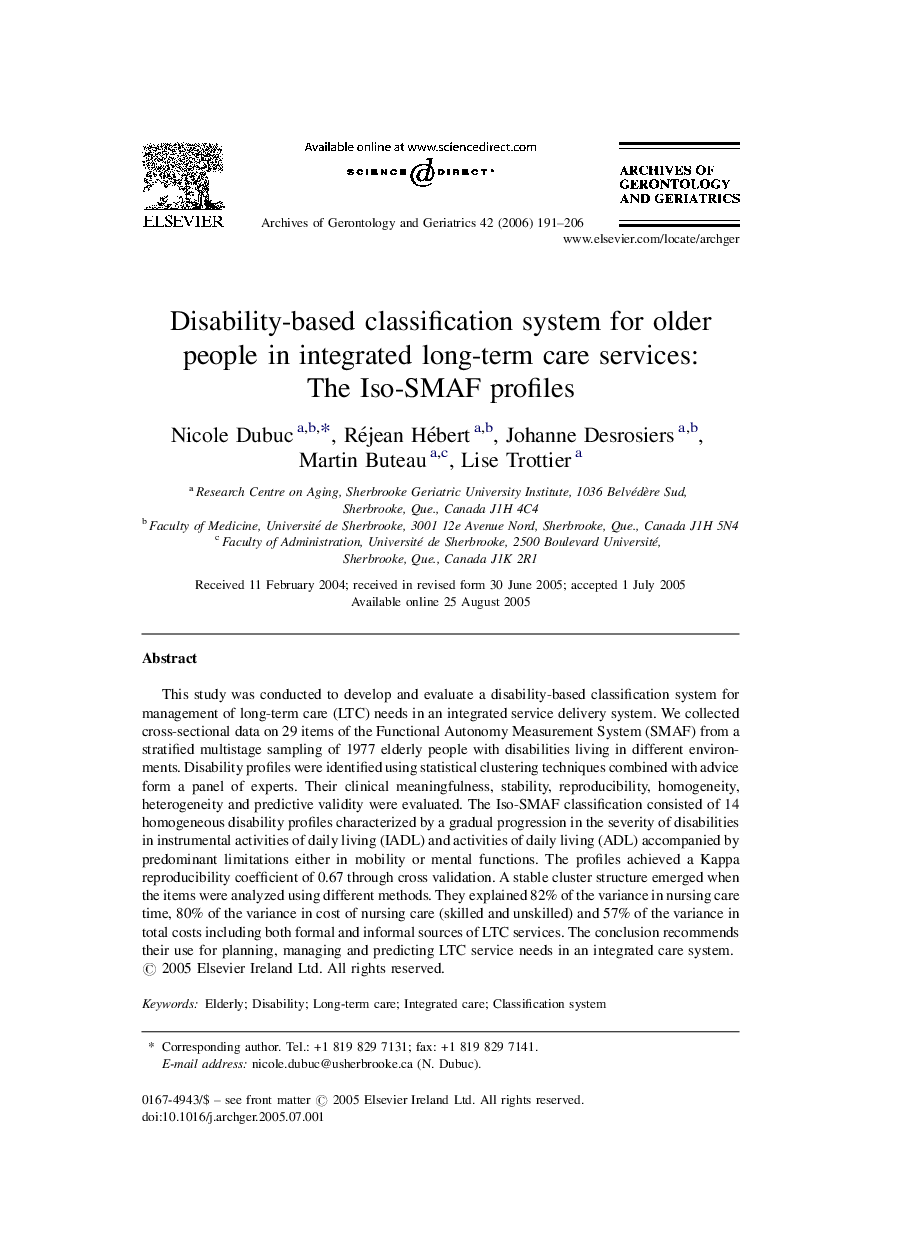| Article ID | Journal | Published Year | Pages | File Type |
|---|---|---|---|---|
| 1904426 | Archives of Gerontology and Geriatrics | 2006 | 16 Pages |
This study was conducted to develop and evaluate a disability-based classification system for management of long-term care (LTC) needs in an integrated service delivery system. We collected cross-sectional data on 29 items of the Functional Autonomy Measurement System (SMAF) from a stratified multistage sampling of 1977 elderly people with disabilities living in different environments. Disability profiles were identified using statistical clustering techniques combined with advice form a panel of experts. Their clinical meaningfulness, stability, reproducibility, homogeneity, heterogeneity and predictive validity were evaluated. The Iso-SMAF classification consisted of 14 homogeneous disability profiles characterized by a gradual progression in the severity of disabilities in instrumental activities of daily living (IADL) and activities of daily living (ADL) accompanied by predominant limitations either in mobility or mental functions. The profiles achieved a Kappa reproducibility coefficient of 0.67 through cross validation. A stable cluster structure emerged when the items were analyzed using different methods. They explained 82% of the variance in nursing care time, 80% of the variance in cost of nursing care (skilled and unskilled) and 57% of the variance in total costs including both formal and informal sources of LTC services. The conclusion recommends their use for planning, managing and predicting LTC service needs in an integrated care system.
